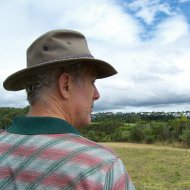
Crop must be sown before the end of May
Irish farmers are being encouraged to take part in a scheme to provide a crop of wild bird cover.
Spring-sown crop or crop mixture must be sown before the end of May, according to the Department of Agriculture and Rural Development (DARDNI).
The schemes aim to give farmland birds a valuable food source for the harsh winter months.
Farmers are paid a rate of around £500/ha depending on the scheme and crop type.
The most popular and easy to grow crop is the one year crop of oats and linseed.
Francis McElwee, who farms on the slopes of Slieve Gallion, Desertmartin, has been growing wild bird cover for eight years under his environmentally sensitive areas agreement.
He said: "I find oats hardier and surer to grow in poorer soils. This year along with oats I am sowing some barley, mustard and linseed.
"With a lot less birds in the countryside now, it's great to see the swallows sailing over the field to pick up insects and the smaller birds feeding on the crop over the winter."



 HMRC has invited feedback to its communications regarding the employment status of locum vets and vet nurses.
HMRC has invited feedback to its communications regarding the employment status of locum vets and vet nurses.